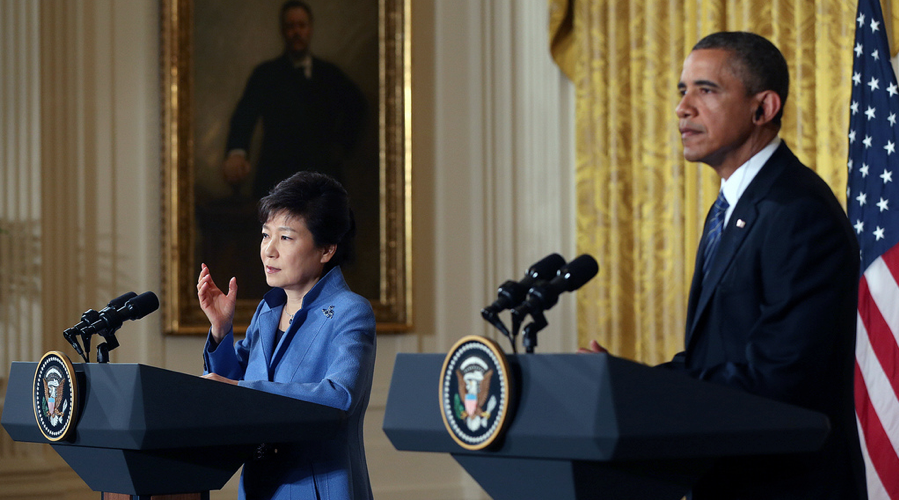About the Author
Balazs Szalontai
Balazs Szalontai is a historian and professor at Korea University, Division of Public Sociology and Korean Unification.

Get behind the headlines
|
Analysis The imbecile, the lecher, the harlot and the monkeyHuman rights concerns, S. Korea-Japan relations as subtexts in N. Korea's war on political correctness  On May 2, 2014, North Korea aroused considerable international attention (and indignation) when the state-run Korean Central News Agency (KCNA) compared U.S. President Barack Obama to a “wicked black monkey.” To hammer the message home, a Korean-language article published soon after quoted four North Korean citizens who elaborated on the monkey image by focusing specifically on Obama’s physical appearance and ethnic origin. For instance, a metal worker named Kang Hyuk was quoted as follows: “Africa’s national zoo will be the perfect place for Obama to live with licking bread crumbs thrown by visitors.” At first glance, the motives behind this crude verbal attack on the United States’ first African-American president may appear quite simple. Ever since Brian Myers published his seminal books, Han Sorya and North Korean Literature (1994) and The Cleanest Race (2010), DPRK watchers have become increasingly aware of the racist and dehumanizing aspects of North Korean propaganda, including the use of pejorative zoological metaphors. In the light of the massive evidence Myers presented on the significance of racial images in Pyongyang’s anti-American propaganda, it seems fairly logical to draw the conclusion: The unreconstructed racist has come out of the closet, that's all. © Korea Risk Group. All rights reserved. |